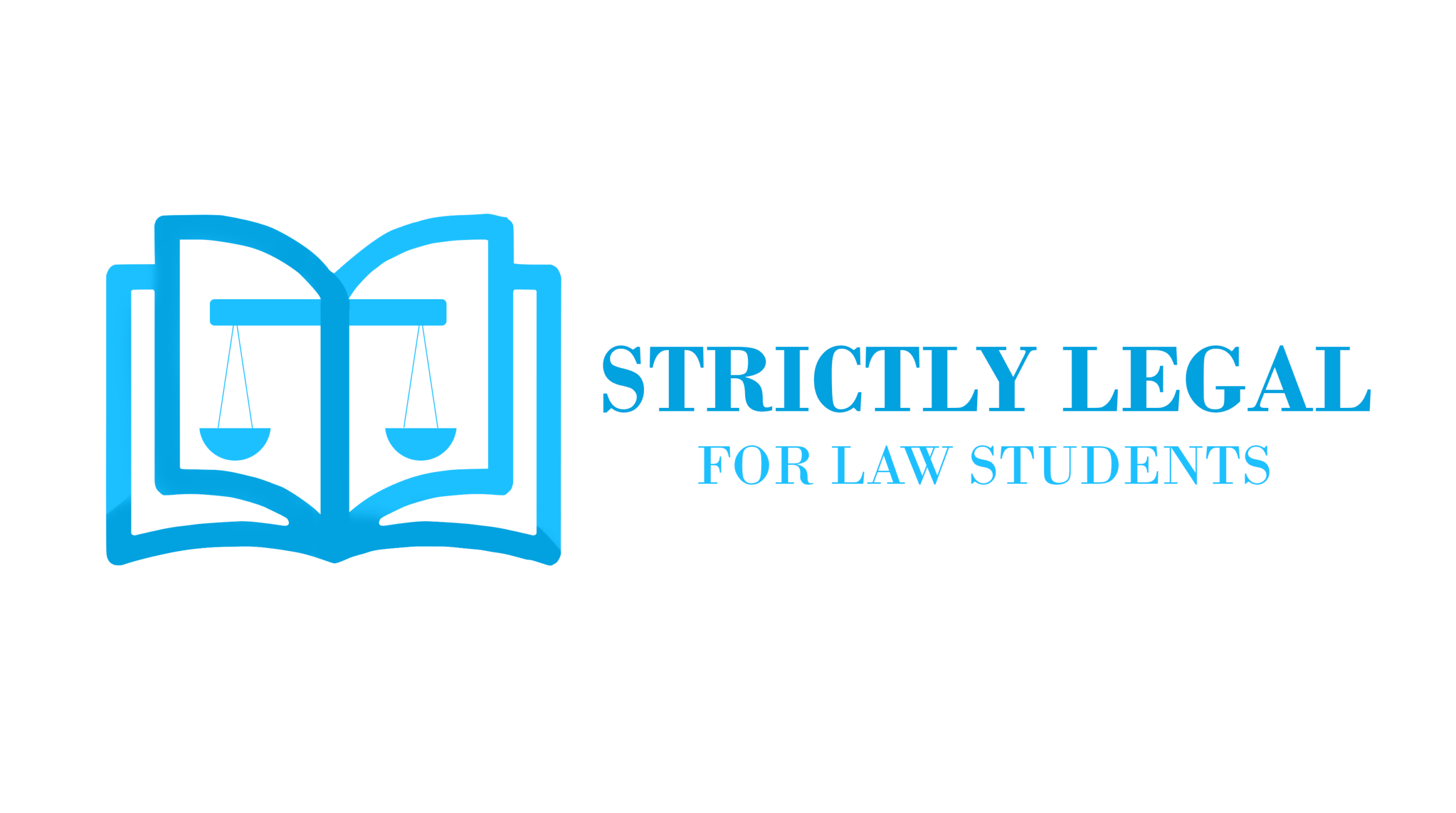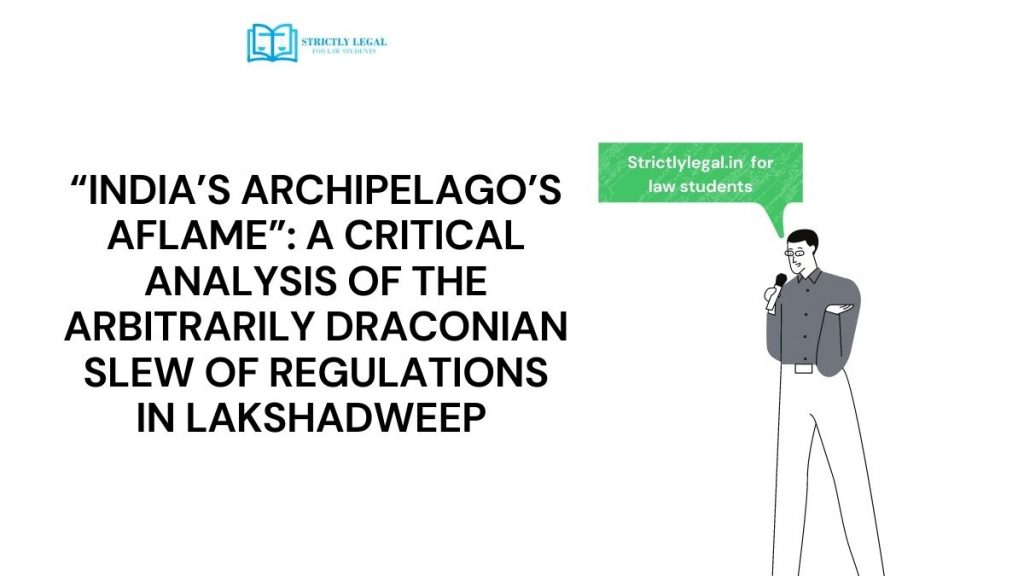Lakshadweep is India’s smallest Union Territory and, 10 of the 36 islands are populated with close to 66,000 people, with at least 95% of them being literate. Any incidents happening in Lakshadweep barely ever make it to national news, so when something does make it to national news it’s a no brainer that something serious is happening there. The recent legislation introduced by the present administration has resulted in widespread outrage not just in the archipelago, but also across various states in the country, with over one lakh tweets under the hashtag #SaveLakshadweep in protest of the new laws, making it one of the most trending topics in India. While there is no reason for India to not leverage its island properties, the latest slew of regulatory changes has been a matter of grave concern for many reasons.
This Article was submitted by Winnie Mathew.
Table of Contents
The Administrator’s ‘objectionable’ decisions
Administrator Praful Patel had announced a slew of draft laws which have upset the islanders which had them championing for his resignation as the administrator.
First being the Lakshadweep Development Authority Regulation. This Regulation empowers the government to constitute planning and development authorities under it, to plan the ‘development’ of any area identified as having ‘bad layout’ or ‘obsolete development’, and the only exception being cantonment areas. In Lakshadweep, the administration is the government. In simple words, this Regulation allows the office of Praful Patel to take over any piece of land on the island and order that it be developed in a certain way. The administrator has the power to acquire any land for what he sees as public purpose. The owner of that piece of land cannot object to this and will be penalized if he/she/ they doesn’t/ don’t do as told. The Draft also states that, “A development plan shall not, either before or after it has been approved, be questioned in any manner, in any legal proceedings whatsoever.” This essentially paves the way for legitimized land grabbing, where the courts cannot be approached by any aggrieved or challenging party. These latest changes by the Administrator have blurred the lines between the concepts of state property and private property.
Land acquisition is a sensitive issue and requires the creation of a consensus by the Administrator. It is up to the government to ultimately take the local community forward, and convince them that there are no ulterior motives at play. This element of cooperation has been severely missing in the present administration’s methodology and has been one of the root causes of the current state of distress amongst the islanders. The widespread unrest and resentment simmering amongst the islanders is attributed to their suspicion that this new regulation might have been issued at the behest of ‘real estate interests’.
Under the Lakshadweep Animal Preservation Regulation, the Patel administration seeks to bring a beef ban in the islands. Lakshadweep has more than 90% population of Malayali Muslims. According to this section 8 (1) of this Regulation, “No person shall directly or indirectly sell, keep, store, transport, offer or expose for sell or buy beef or beef products in any form”, anywhere in Lakshadweep. As per section 10 (2) of the Regulation, there are heavy penalties attached with this ranging from imprisonment for a term of 10 years to a fine of Rupees five lakhs. This law has great potential to change the fundamentals of the islanders’ social life and habits.
The Lakshadweep Prevention of Anti- Social Activities Regulation, also known as the Goonda Act, was introduced in the archipelago in January 2021. Under this Regulation, a person can be detained without any public disclosure for a period of up to 12 months. According to local media, the administration has used the Goonda Act to quell opposition and challenges to its policies. This included islanders who had erected banners protesting the Centre’s CAA/ NRC laws earlier. Concerns have arisen as to the relevance of this extreme regulation in an island with negligible crime rates, and this in turn has further fortified the suspicions and apprehensions of the islanders against the new Administrator.
Another objectionable law is the Lakshadweep Panchayat Regulation, 2021. Section 14 (1)(ii)(n) of the Draft states that, “No person shall be a member of a Gram Panchayat or continue as such who has more than two children”. This arbitrary alteration in the regular operations of the islands has caused massive unrest and unease amongst the islanders, which has led them to call for the recall of the Administrator and a review of the ‘autocratic’ regulations. In the words of Kerala’s Chief Minister Pinarayi Vijayan, who has been avidly supporting the islanders protests against the slew of regulations, the latest restrictions by the administration “would seriously affect the tradition and practices of the islanders”. The Chief Minister along with several other MPs from Kerala have also sought central intervention in the matter. As a nail in the coffin, BJP’s own unit president in the islands Mohammed Kasim, has supported the local protests against the new administrator’s regulations and has stated the islanders’ concerns to be ‘genuine’.
COVID Mismanagement
Besides the havoc and unrest that these new regulations inaugurated in the archipelago, the mismanagement of the COVID-19 pandemic in the islands has been another topic of grave concern. Till January 2021, Lakshadweep has been the only place in India that had zero cases. As of May 25, 2021, Lakshadweep has witnessed about 7000 cases and 26 deaths. This adversity has been attributed to the Administrator’s issuance of a new Standard Operating Procedure (SOP) which did away with the unassailable quarantine rules of Lakshadweep. Earlier, there was a strict seven day quarantine rule in place for anyone who was coming to and going off the island. However, according to the new guidelines, the requirement for entry was condensed to a negative RTPCR report, which has lately been considered to be inadequate to detect the latest variants of the virus.
A complete dishevelment of the islanders’ indigenous culture
The liquor laws in Lakshadweep have now been relaxed for tourism purposes. This essentially allows for resorts in the populated islands to serve liquor. Earlier, liquor was allowed only at resorts in the uninhabited Bangaram island. The prevention of liquor was due to cultural reasons, owing to the majority of the population being Muslim, and thereby respecting their sense of conservatism. While one might argue that India being a democracy cannot hold such reservations based on a religious majority, the irony in this matter cannot be overlooked considering Administrator Patel’s strong affiliation and history with the state of Gujarat, where the manufacture, storage, sale and consumption of alcoholic beverages has been proscribed since 1960. Patel has also made school meals completely vegetarian. This is in a place surrounded by the ocean and majorly dependant on a sea food based diet. The islanders have also been alleging that the ‘animal preservation’ is being done to hurt the local dairy farms and make way for big companies like Amul to come in and set up shop there.
Rajya Sabha MP Elamaram Kareem wrote a letter to President Ram Nath Kovind, highlighting the challenges the islanders have been facing owing to the sweeping changes in law. He stated in his letter that many casual and contract labourers working under different departments have lost their jobs. Sheds and huts along the coast where fishermen used to store their nets and other essential equipment were demolished by the new administration on the grounds that they violated the provisions of the Coastguard Act. This is a detrimental blow to a community for whom fishing is the main source of income. In addition to this, temporary buildings which were earlier constructed under an exemption given only to fishermen are now being demolished without any warning. He also states in his letter that the administration has declared that the islanders should no longer depend on Beypore, which is a port town in Kerala, for the trade transit. Instead, they are now required to depend on Mangalore for this purpose. This addresses the rising apprehensions in Kerala regarding the Administrator’s ideal to shift the umbilical relationship between Lakshadweep and Kerala to to Mangalore, which is in BJP ruled Karnataka. Lakshadweep MP Mohammed Faizal has also alleged that Administrator Patel has signed orders to retrench about 200 contract staff who were working as marine watchers for the conservation of marine biodiversity. These are posts which were sanctioned by the Ministry of Environment, Forest and Climate Change and separate funds for this had already been earmarked.
Conclusion
In the words of John Philpot Curran, “In this administration, a place can be found for every bad man”. India’s islands across its vast oceans prove to be incredible assets to the country and the cooperation and contentment of the inhabitants of these islands are paramount to the present as well as the future of the entire nation. What has been recognized to be ‘authoritarian measures’ by many, and believed to be BJP’s attempt to ‘saffronise the island’ by the opposition, is definitely detrimental to the culture and ecology of the archipelago. The arbitrary draconian laws have been drafted with scant regard for the islands’ ecological, geographical and social realities. What can only be hoped is that the concerns of the people be heard and that a state of normalcy and peace is returned to the currently and rarely distressed islanders who pray that the archipelago isn’t exploited at the cost of its culture and heritage.

Users not registered with Strictlylegal can Email us their content and the same are posted through this account. In case of abuse, kindly let us know at [email protected]




